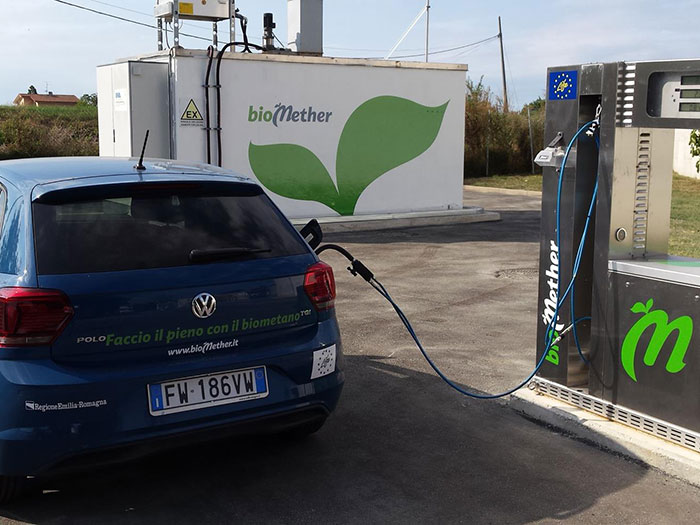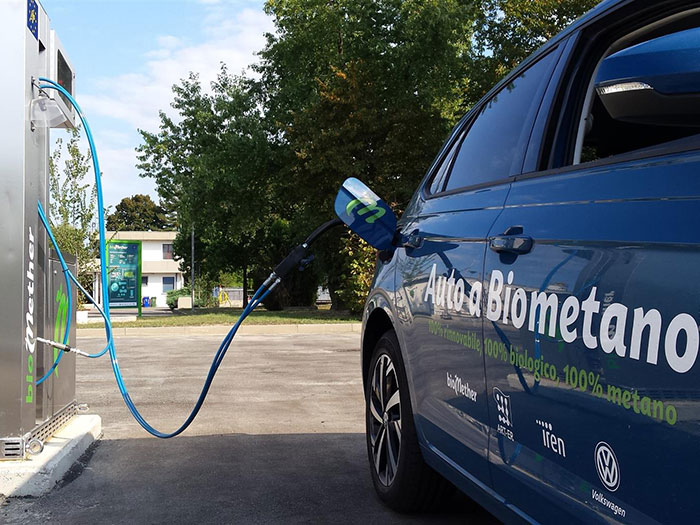Biomethane: kick off for a test in Italy with Volkswagen
Two Polo TGIs powered by the biomethane produced in Emilia-Romagna will be tested for emissions, consumption values and the effect of the fuel on the cars’ mechanics.
Among the strengths of methane are its high energy potential and the possibility to generate it through environmentally-sensitive processes. In a period of transition towards electric mobility, it stands out as a particularly interesting option.
Efficiency and sustainability

This technology combines efficiency, savings and sustainability. Indeed, a car powered by fossil natural gas emits around 25% less CO2 than one running on petrol, a result of the low carbon component in natural gas and its higher energy capacity. In addition, methane combustion generates less carbon monoxide (CO) and fewer nitrogen oxides (NOX), as well as minimal levels of particulate matter.
A source of renewable energy
People are increasingly talking about biomethane. Comparable to a fossil fuel, this renewable alternative is obtained from the upgrading of biogas produced by the anaerobic digestion of organic matter of different origins (zootechnical effluents, agricultural and agro-industrial by-products, organic fractions of urban waste, sewage sludge and dedicated crops). It can be used in natural gas transport and distribution networks for heating, domestic and industrial uses or as a fuel for transport. It is therefore a “green methane”, that can significantly contribute to the reduction of greenhouse gases emissions. Specifically, by only using this type of fuel, cars produce around 80% less CO2 compared to those running on petrol (when the Well-to-Wheel cycle is taken into account, which includes the production and use phases).
The experimentation

On this basis, Volkswagen Italia has entered into a partnership with the Emilia-Romagna ART-ER Consortium and multiutility company IREN, which comes within the framework of the Biomether project. In concrete terms, Volkswagen has provided three Polo TGIs: two will be powered by the biomethane produced by IREN, while the third will run on fossil natural gas. The vehicles will be monitored by technicians from ENEA (Italian National Agency for New Technologies, Energy and Sustainable Economic Development) who will perform periodic tests on their emissions (CO, CO2, total hydrocarbons, NOX), consumption values, and the effects of the two fuel types on the cars’ mechanics. The tests will take place at three stages: at the beginning of the trial, after around 15,000 km and then once the planned total distance of 30,000 km has been covered. The aim is to demonstrate the sustainability of biomethane as a low-emission fuel with reduced impact on air quality.
